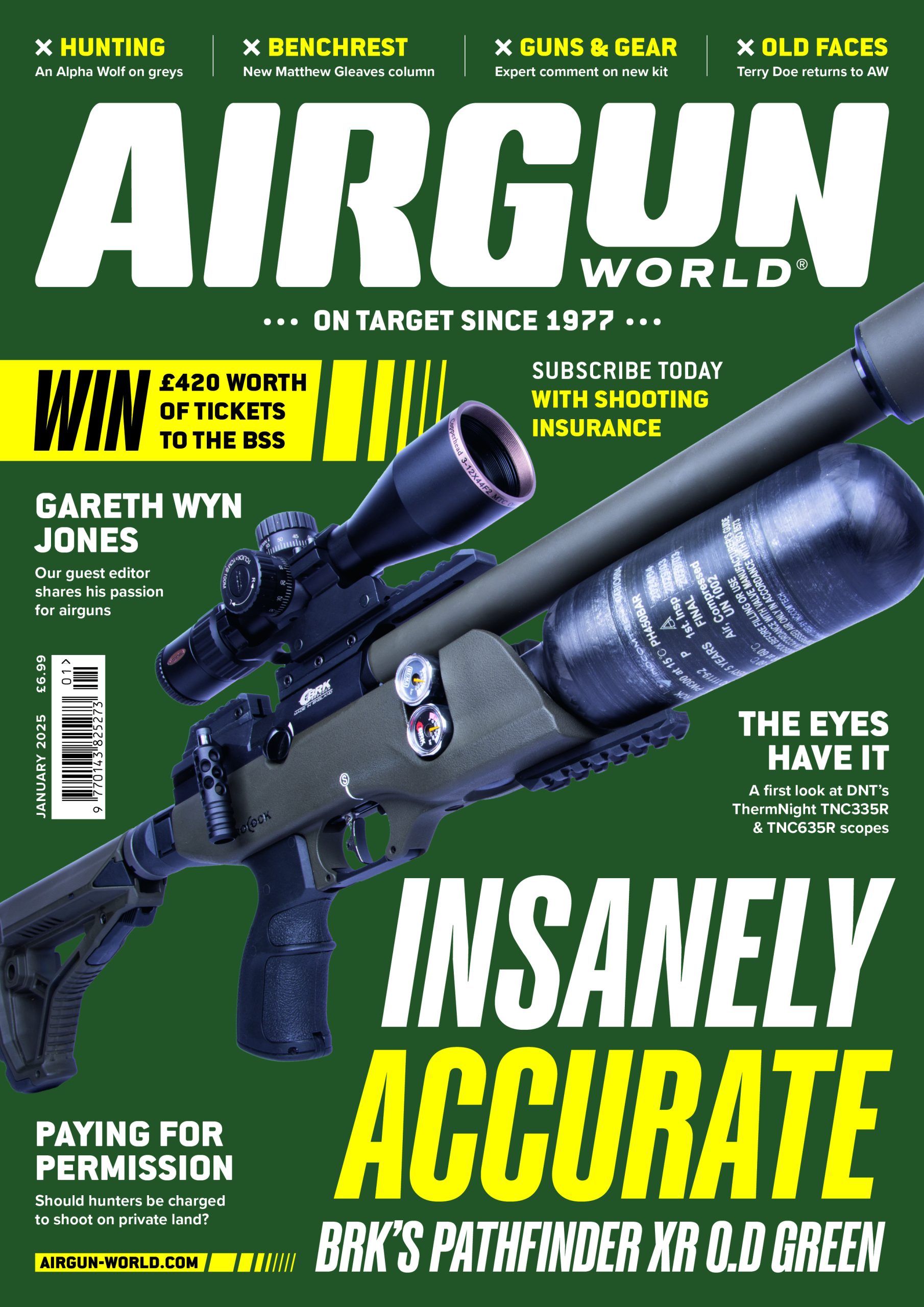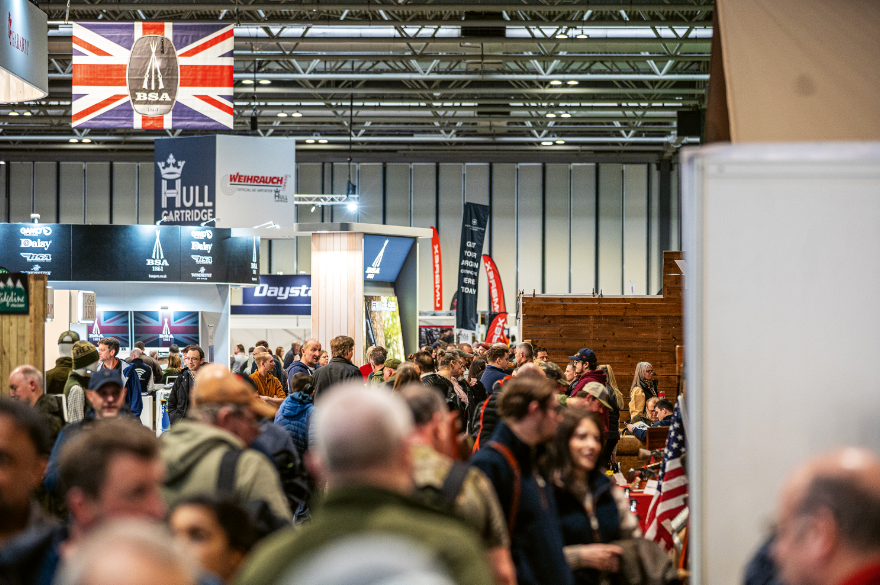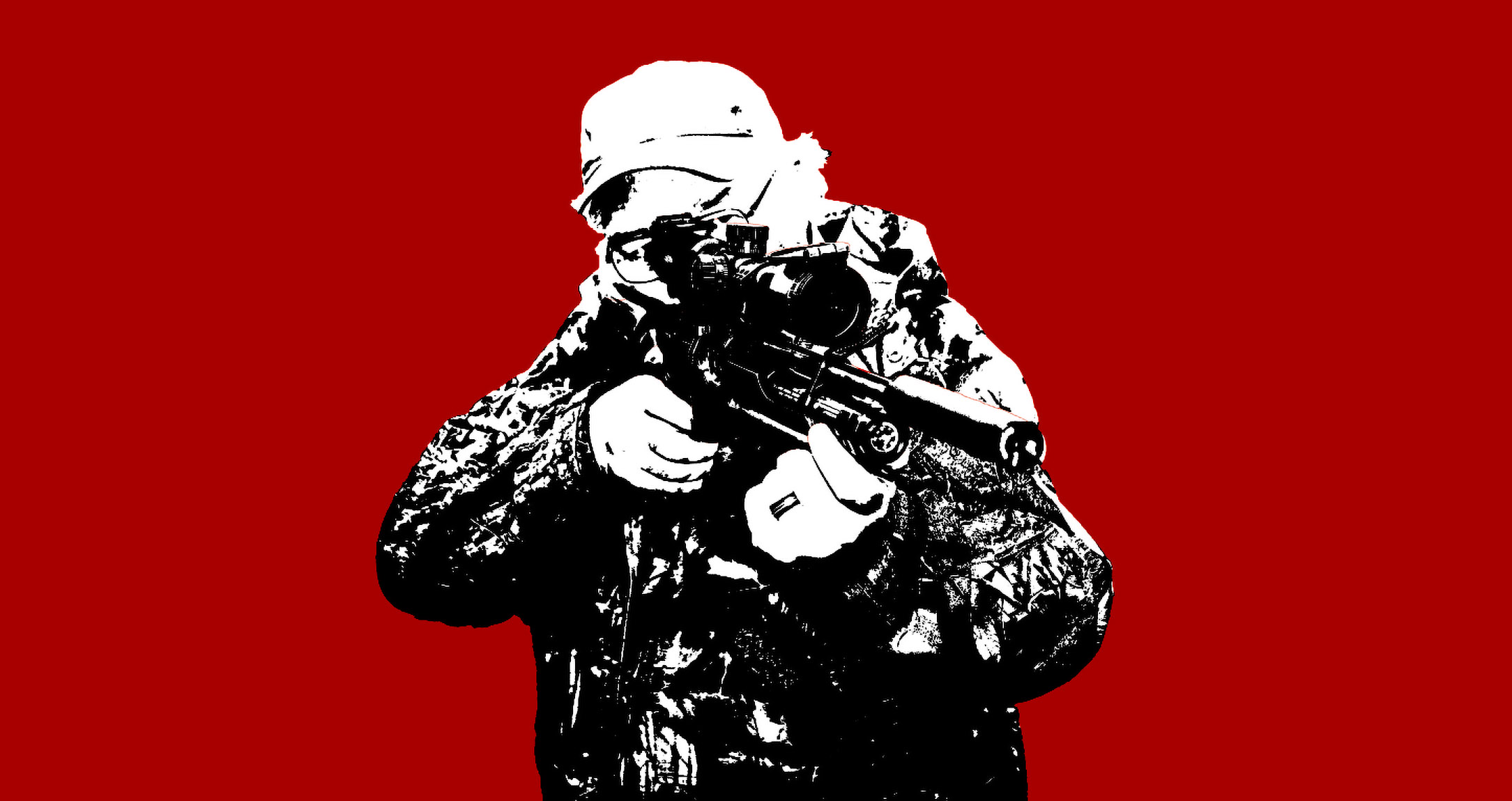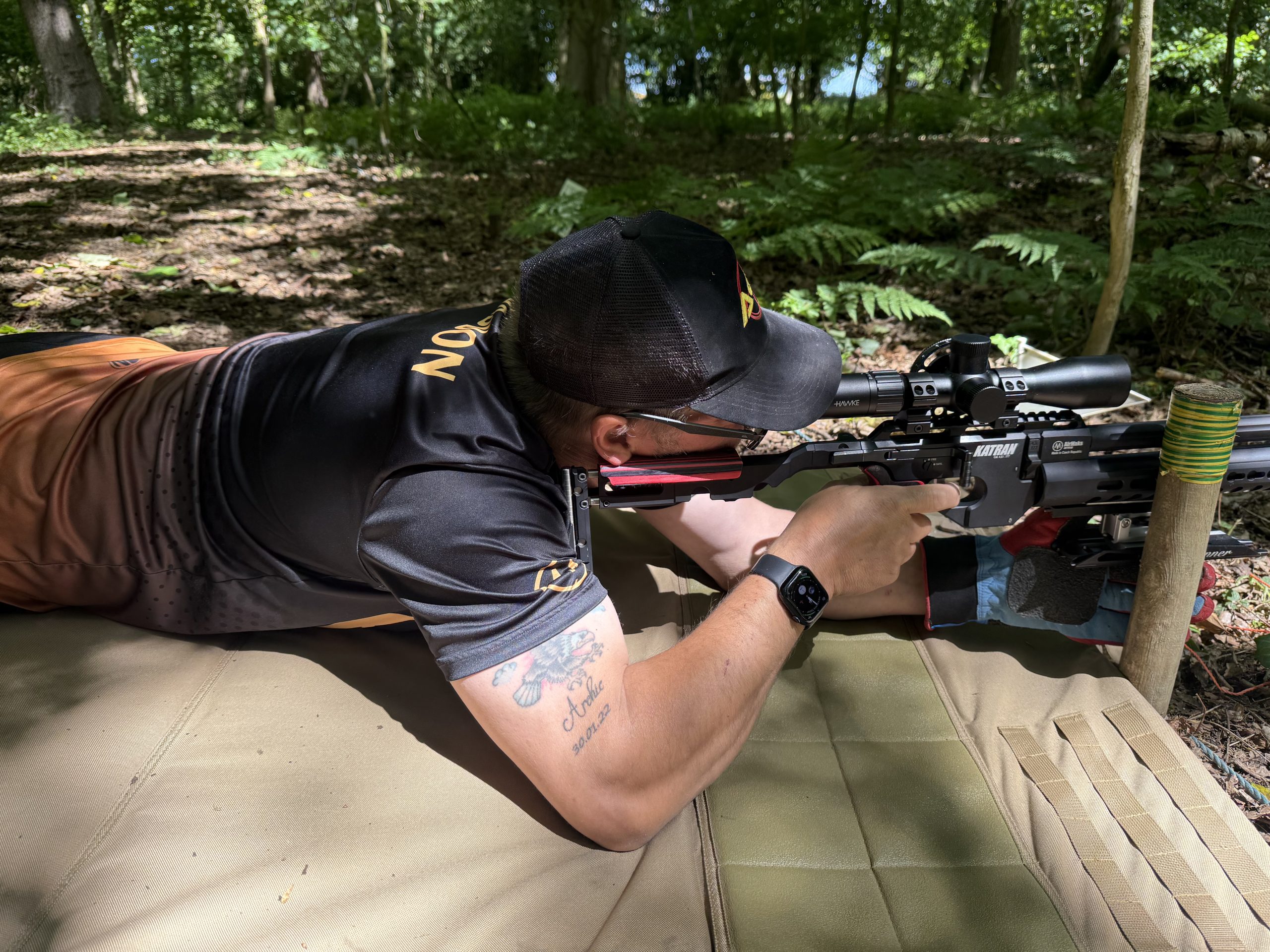Newton’s Lore

Gamekeeper Steve Newton weighs up the pros and cons of being a pro
It’s strange to think that when you read this the shooting season will be just a couple of months or so from ending, but at the time of writing we’ve just had our first shoot. Oh well, that’s publishing deadlines for you. Anyway, despite the damp weather that arrived in the afternoon all went extremely well, with everyone having a very good time. The beaters did a good job and the dogs worked tirelessly until rain stopped play at around 2.30pm, whereafter we all retired to the local pub for a few beers and a hearty dinner.
The enjoyment of the day had nothing whatsoever to do with the size of the bag; in fact few birds were shot, but the enjoyment came from watching some good dogs work and spending the day with old friends and other like-minded people. The afternoon wore on and as the guns and beaters finally went home to a warm bath and an evening in front of the TV, I turned and headed back to the shoot. It was getting dark and I knew I would be out tonight, rain or no rain, looking for the two foxes that were flushed from drives earlier in the day.
Bonkers
There were many remarks of how ‘bonkers’ I must be to go out in that weather again but I knew these animals would be displaced, and with their home woods temporarily full of the smell of humans and dogs, they were more likely to be out in the open tonight, where I had a good chance of taking them out with night vision. The opportunity was there, regardless of weather, or how good a hot bath sounded, and this is the difference between the weekend sport shooter and a professional pest controller.
The point to all this is simple; I thought I would do a piece on hunting in the winter and bad weather but the simple truth is, we have to be out there while you guys don’t, so why would you want to? There are many fair weather sportsmen out there who will only hunt in the spring and summer months, when quarry is plentiful and being out in the countryside is extremely pleasant in itself, and who could blame them? But come winter it’s a different matter altogether. Quarry is elusive and the climate is not pleasant at all and if you are not enjoying yourself then what is the point?
Timing is Everything
My advice to weekend shooters is simple; if the weather is too horrible for hunting to be enjoyable, then stay at home and be warm and dry. There are times when even I will not venture out for airgun quarry. No rabbits are going to be sitting out feeding in open fields in torrential rain, and neither will pigeons fly to and from feeding grounds. Contrary to popular belief, rabbits do not need to feed every day and can go for long periods without ever venturing above ground.
They have a uniquely clever trick, where they can eat their own droppings, or rather they can eat the cecotropes which are produced in a region of the rabbit’s digestive tract called the cecum. The cecum contains a natural community of bacteria and fungi that provide essential nutrients which in layman’s terms means the rabbit can stay underground in the most inclement of weather without starvation, for days if necessary. Add to that the ability to re-absorb their young in a bad breeding season and you can see why the rabbit is one of the most successful species on the planet. Pigeons and other winged vermin rely on the condition of their feathers for their survival and will not attempt to fly in heavy rain unless they have to, when flushed for instance, although they will only be able to stay under cover for a day or so before needing food.
Foxes are a different matter entirely and will need to be out there at night foraging for food, regardless, and it is these that draw me out on the most terrible of nights over baits. Even ‘Charlie’ doesn’t want to get soaked and on such nights will tend to go straight to the baits to feed so he can go home early, a trait that can make such nights productive. So as a professional I have to make these weather conditions work for me to get the job done, but as an airgun hunter, when it’s raining heavily and you are stalking out in the open fields, the chances are you will be the only living thing silly enough to be out there, so why bother?
Winter Rewards
On the other hand, winter shooting can be extremely rewarding and for the professional this is the time when we really make inroads into the breeding nucleus of the rabbit population. See, it’s easy to make impressive bags of inexperienced animals in summer but you are not really doing much for the overall culling of pest species. By the time winter comes all the easy pickings have been picked and now you are left with the hardened and experienced animals, and they have not survived this long by accident. These are the best nature has produced and that is how it must be to breed good-quality animals for the future, and it is these that the professional must remove if there is to be any major impact in the population come spring. So for those dedicated hunters who just can’t bear to put the rifle away for the winter here are a few observations and thoughts that may help you make the most of your winter hunting expeditions.
Adapt and Overcome
I’m not going to bang on about clothing except to say it’s very important to wrap up well while hunting in cold weather. I always wear several thin layers to trap the body heat and still allow me to shoot effectively, but other than that I make very little change to my clothing or equipment. More important is that you adapt your hunting techniques by understanding how your quarry reacts to the various weather changes, and how their feeding pattern changes accordingly. You’ll also need to know where the available food sources are and plan your tactics around it.
For instance, in autumn you may go lamping and think the rabbits have all gone as hardly any are out in the fields, when really they are simply all in the woods feeding on chestnuts. Rabbits, squirrels, pigeons, crows, magpies, in fact most suitable airgun quarry species, love chestnuts so it makes sense to find out if you have any on your permission. The same can be said of beech mast; rich in oils, this nut will draw quarry from miles around and any stand of beech trees is a logical place to set up hides.
Light Rain
We’ve talked about torrential rain being a waste of time but a light drizzle can be absolutely perfect for lamping, and if it’s accompanied by a bit of wind, all the better. Here we use the darkness of the clouds to give us cover and the power of the wind to cover any sound we may make and to whisk away our scent, but if that drizzle turns into a prolonged downpour, you might as well go home.
This brings up another issue; how do we shoot accurately in these windy conditions? Well, that’s all down to practice and Phill Price wrote a whole article on this very subject in the October issue, so my advice would be to check it out. Eventually, we will be into the hard weather, the deep frosts, freezing cold and of course, the snow.
Snow-How
For the novice hunter trying to learn fieldcraft, the morning after a snowfall is the very best time to be out. The snow will show you exactly what is on your permission and where it is living. There in the snow is a whole volume of lessons to be learned about the habits of your quarry. Look closely and you will see that here a squirrel uncovered a buried acorn, and there a rabbit came out of the wood and cleared an area to feed, and here another urinated before passing into the next field.
You will learn more in one morning than you would in a library of books on the subject, but once the snow becomes too deep or frozen then the rabbits must once again retire to the woodland where the snow may not be deep enough to hide all the food, but if it has, and it’s a long spell, then out of desperation they will begin to strip tree bark.
Pigeons will be looking for any greens above the snow line and this is when brassica tops come under attack and decoying becomes the order of the day. Before this they were on acorns and berries but now nature’s harvest has dried up and they are forced on to this substandard food source where they must consume much more material to stay alive. This can lead to larger bags if you know what you are doing.
I don’t advise sitting in hides for long periods in this weather, and there’s little fun in hours of frozen fingers and toes. I prefer to keep on the move, pausing in one spot for no more than perhaps 20 minutes or so, and in this way I keep the blood circulating and my mind on the job. Baiting stations work well all year round but they really come into their own in winter. A simple feeder set up somewhere advantageous will always produce sport and can make even a short trip worthwhile.
Respect
From one hunter to another, in a very hard and prolonged spell, please show some respect for your quarry. Ask yourself if you really need to kill that animal because they are having a hard enough time staying alive as it is without the added pressure of you hunting them.
As a professional I have no choice, but you do. There is little merit in shooting a starving rabbit with no meat on it. Similarly, starving pigeons will become suicidal on brassicas in a prolonged hard snap and it’s easy to make large bags of birds that are, in fact, dying of starvation anyway. You don’t have to kill something just because you can; the choice is yours but remember, it’s your future sport you are killing!
Final Thoughts
So to sum up; make sure you know and recognise all the available food sources on your permission and know when they will ripen and become edible, then plan your winter campaign around that information. Practise in all weather conditions so you are not too disadvantaged when hunting in those conditions. If the weather is so bad that you are not enjoying it then don’t go, there will be other days. Give baiting stations a go you will surprised how effective they are. Do not remain motionless for too long, and when it becomes uncomfortable, move on somewhere else.
Look after your wet rifles and oil them well before putting in the cabinet, but spray the oil onto a rag and wipe them over with that. Don’t spray the oil directly onto the surface as this will attract dust. That’s it for this month as always have a good one and shoot safely! n
Related Articles
Get the latest news delivered direct to your door
Subscribe to Airgun World
Unlock the world of airgun shooting with a subscription to Airgun World magazine, Britain’s biggest-selling airgun publication.
Written by passionate, long-term airgun enthusiasts, each issue delivers expert insights, comprehensive gear reviews, and invaluable tips to enhance your shooting skills. Whether you’re a seasoned shot or new to the sport, Airgun World offers essential content covering shooting techniques, classic airguns, and the latest equipment innovations.
Stay informed with cutting-edge news, in-depth analysis and exclusive offers from specialist partners. Plus, enjoy the convenience of both print and digital access, ensuring you never miss an issue. Subscribe today and join a community of dedicated airgun shooters aiming for excellence.














